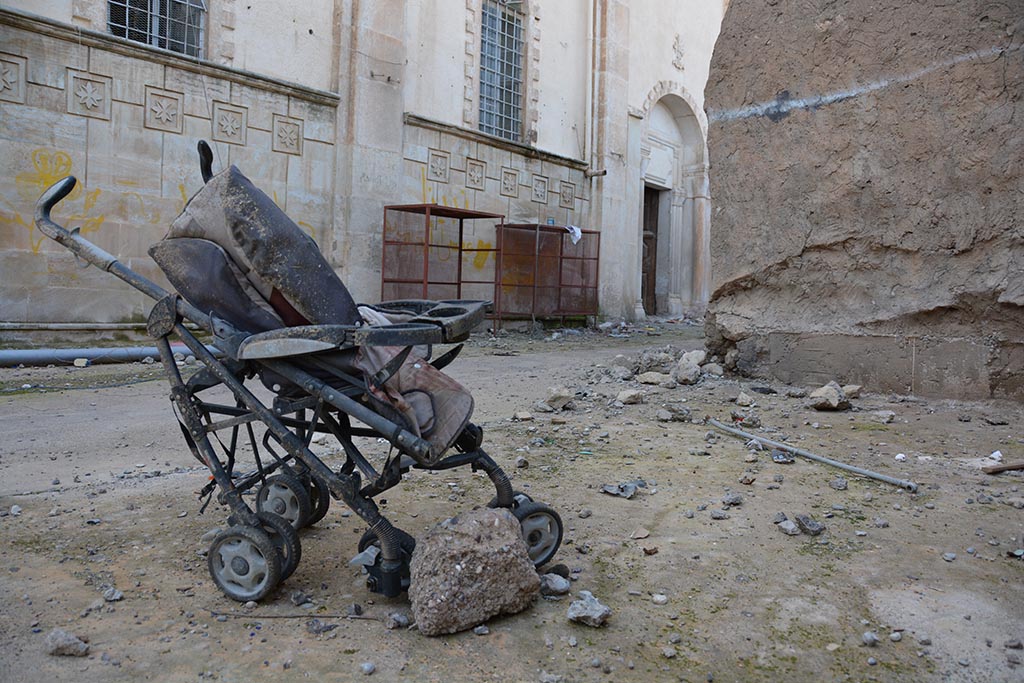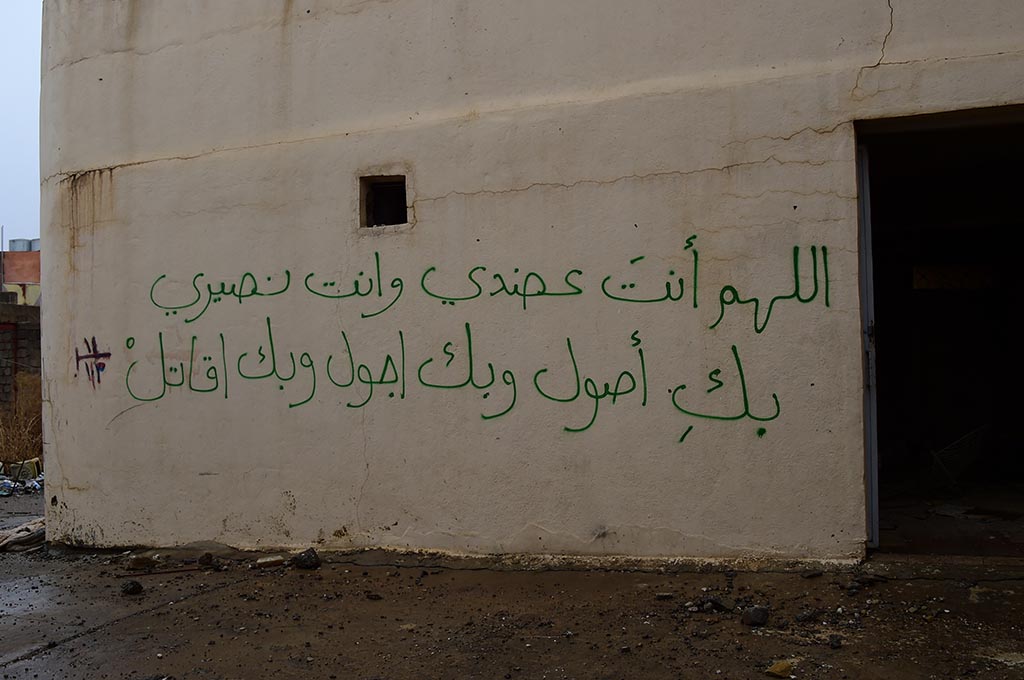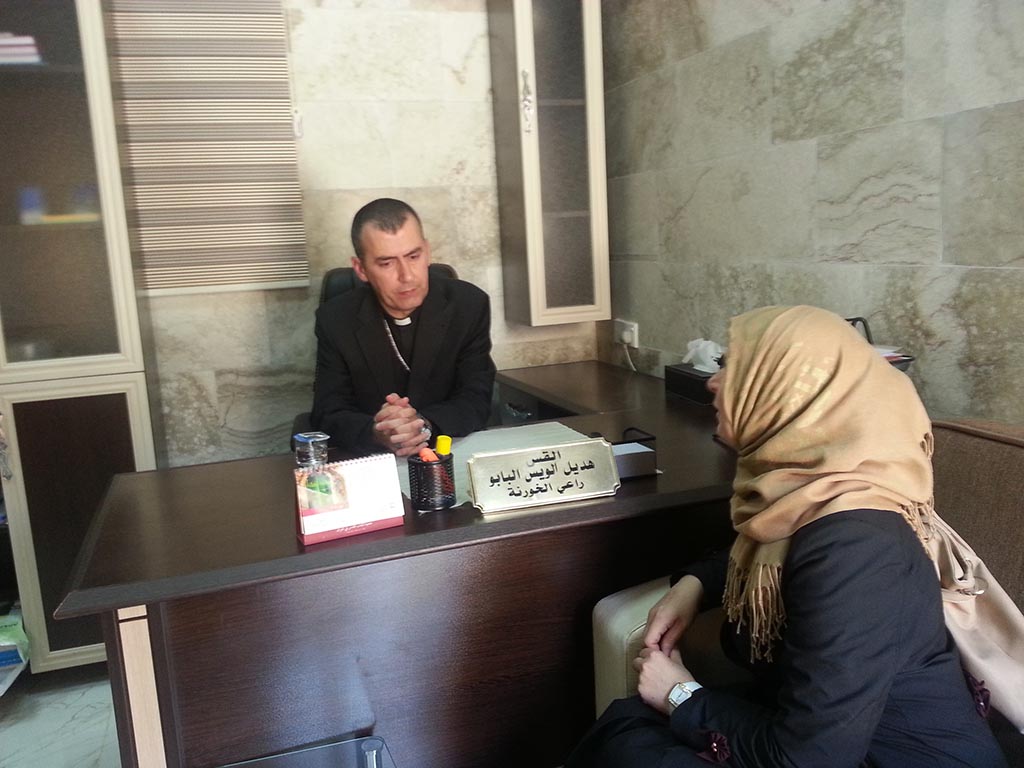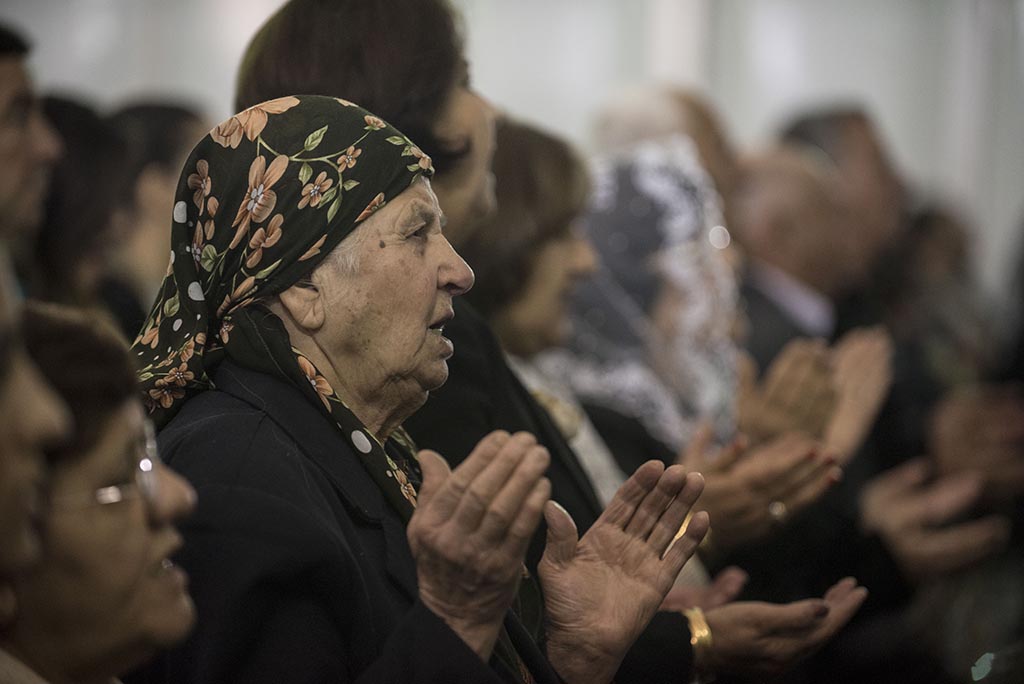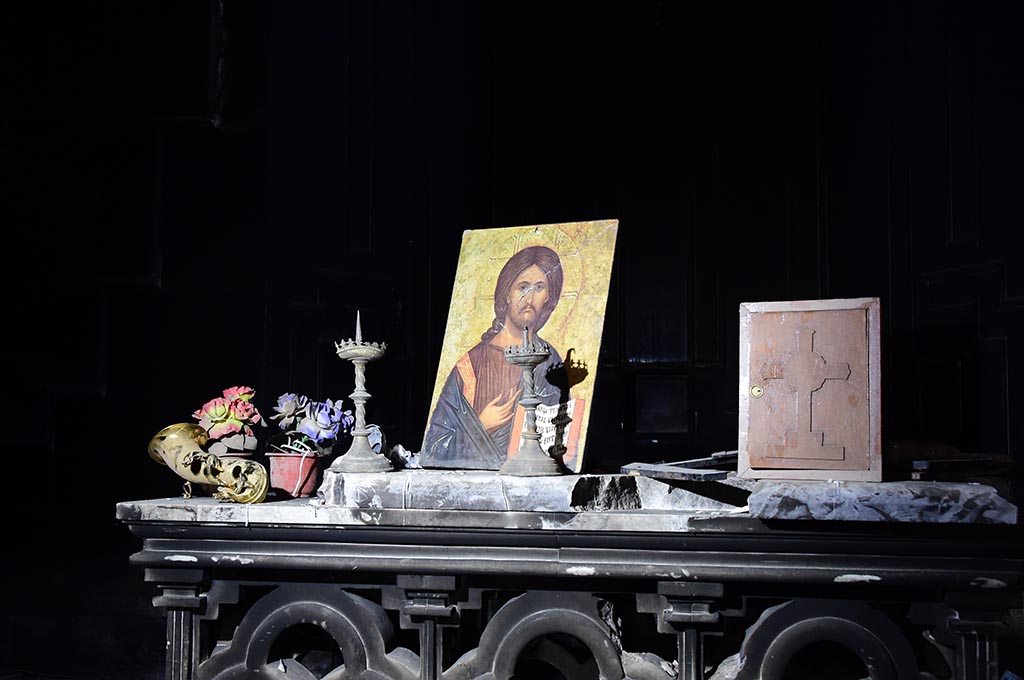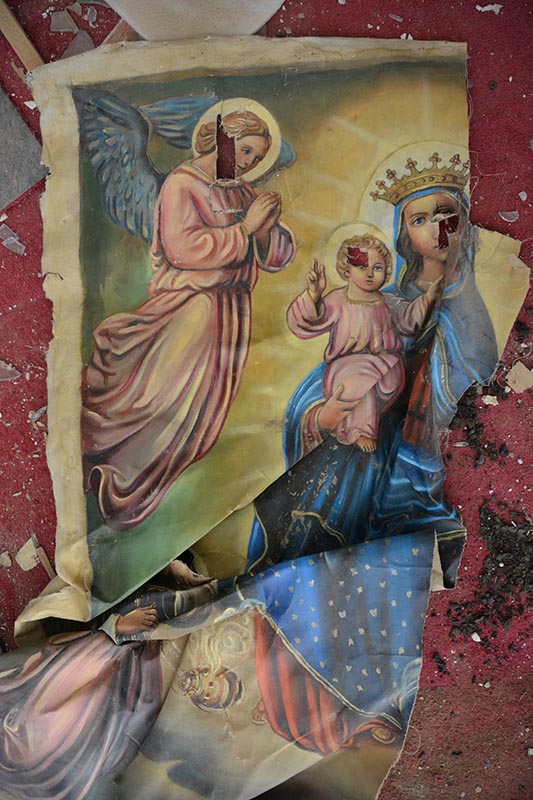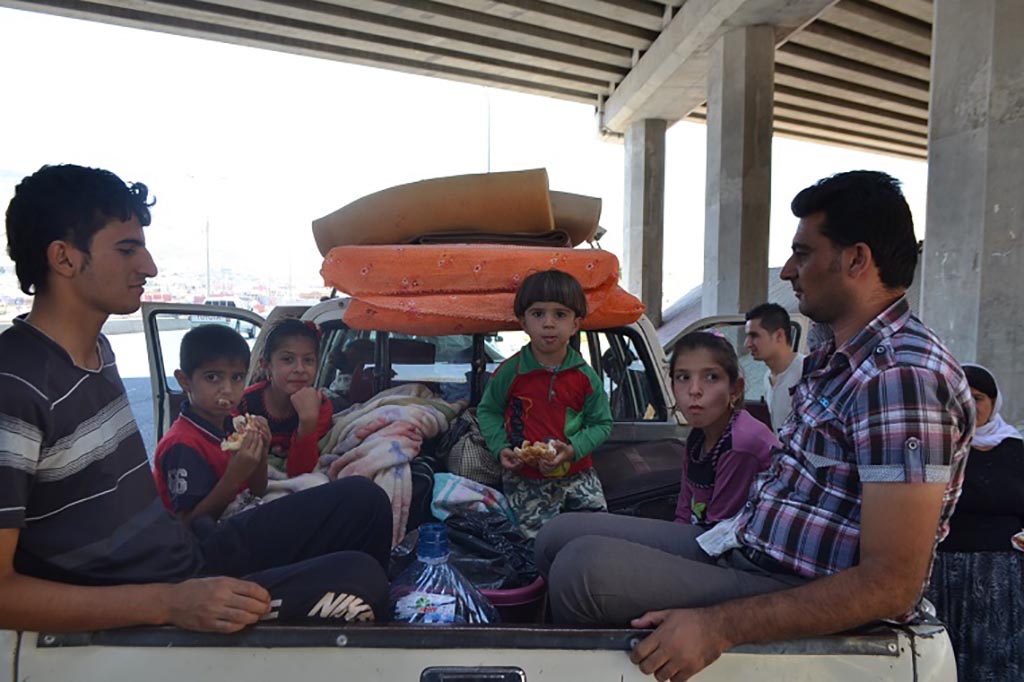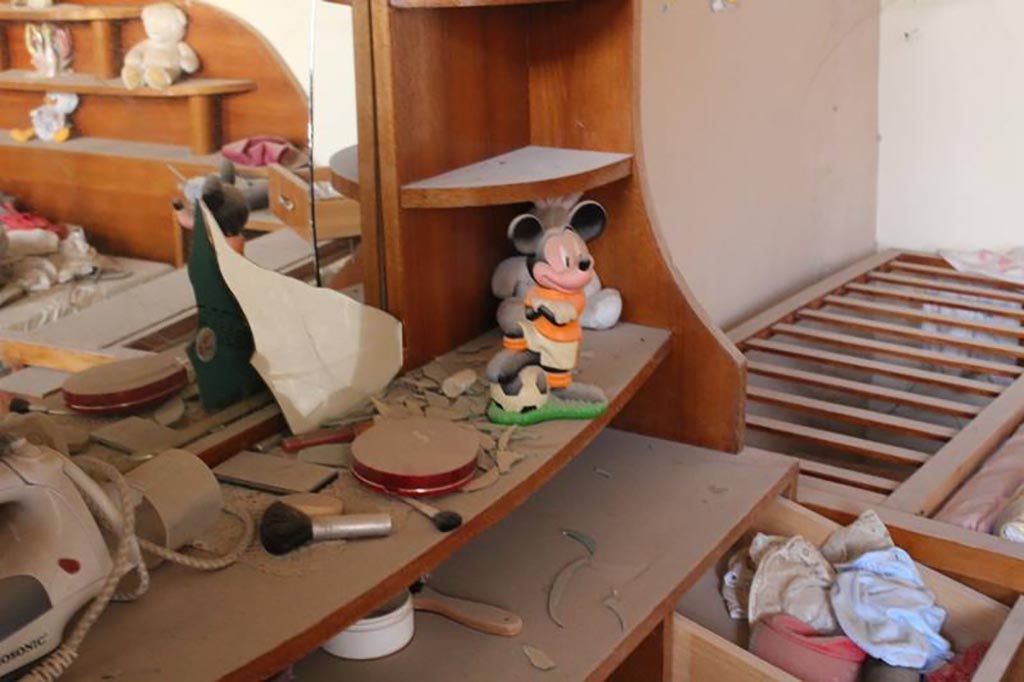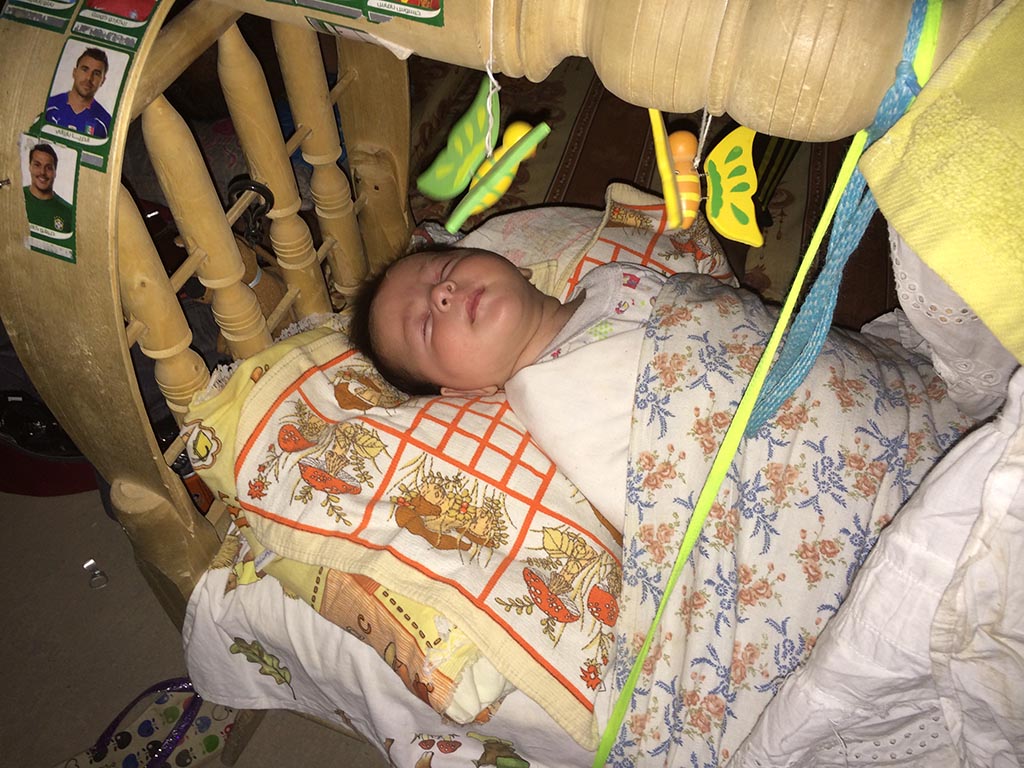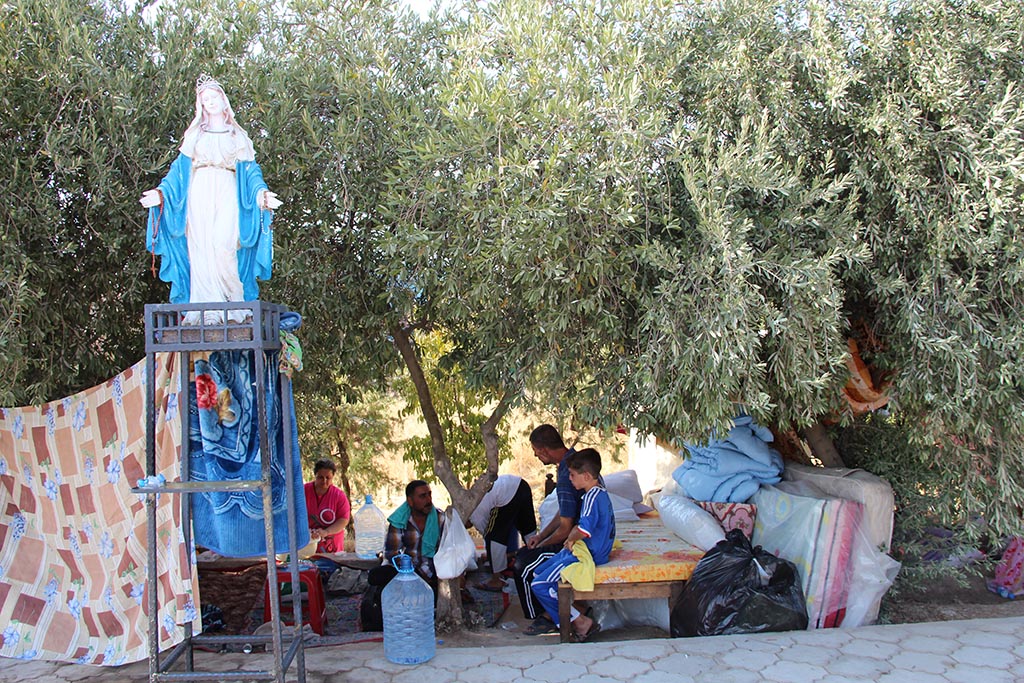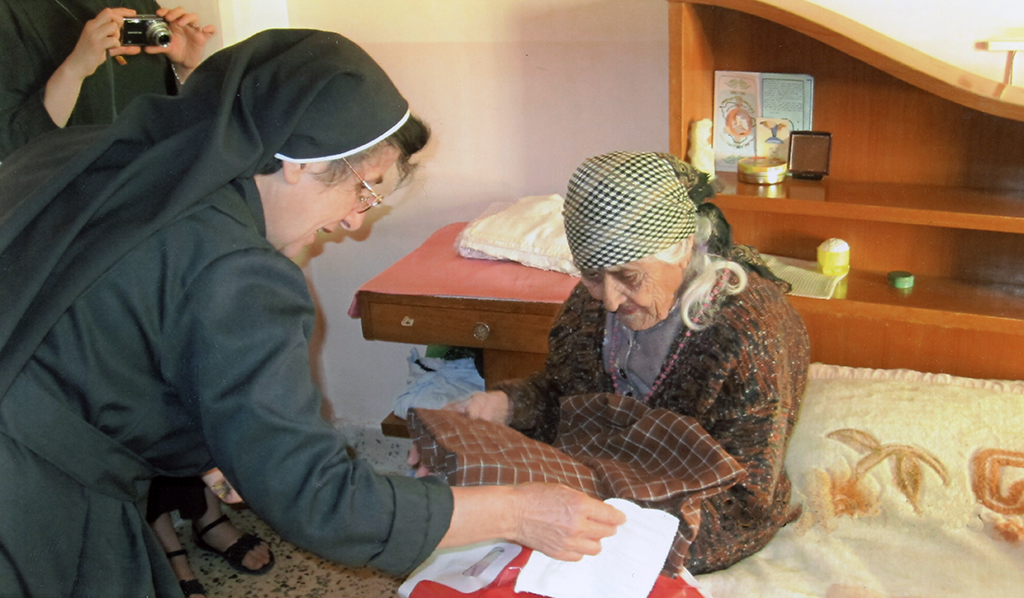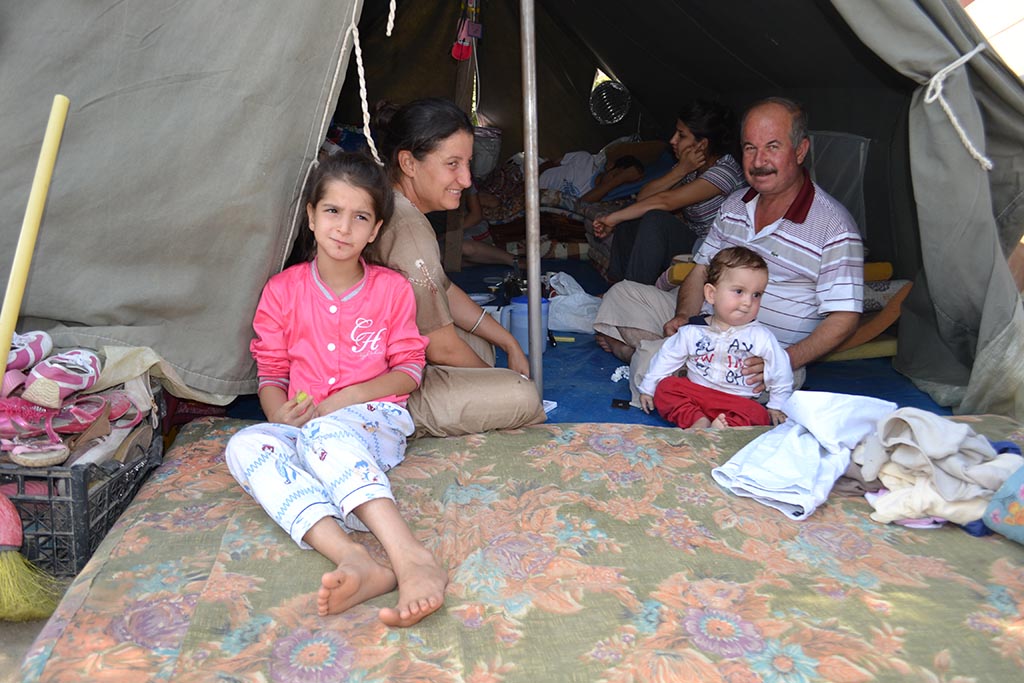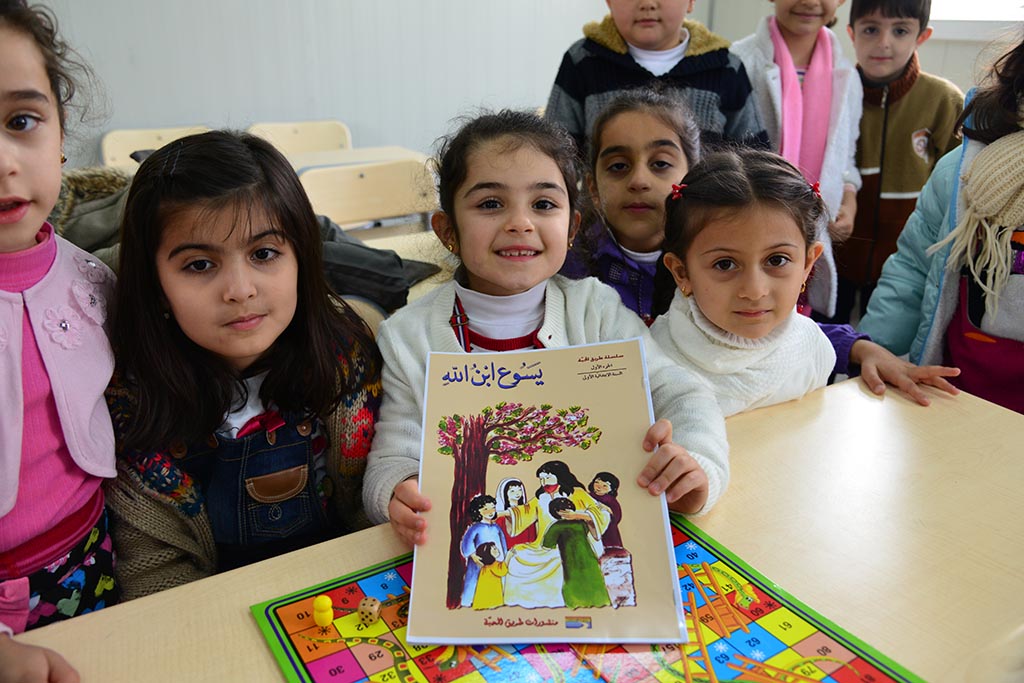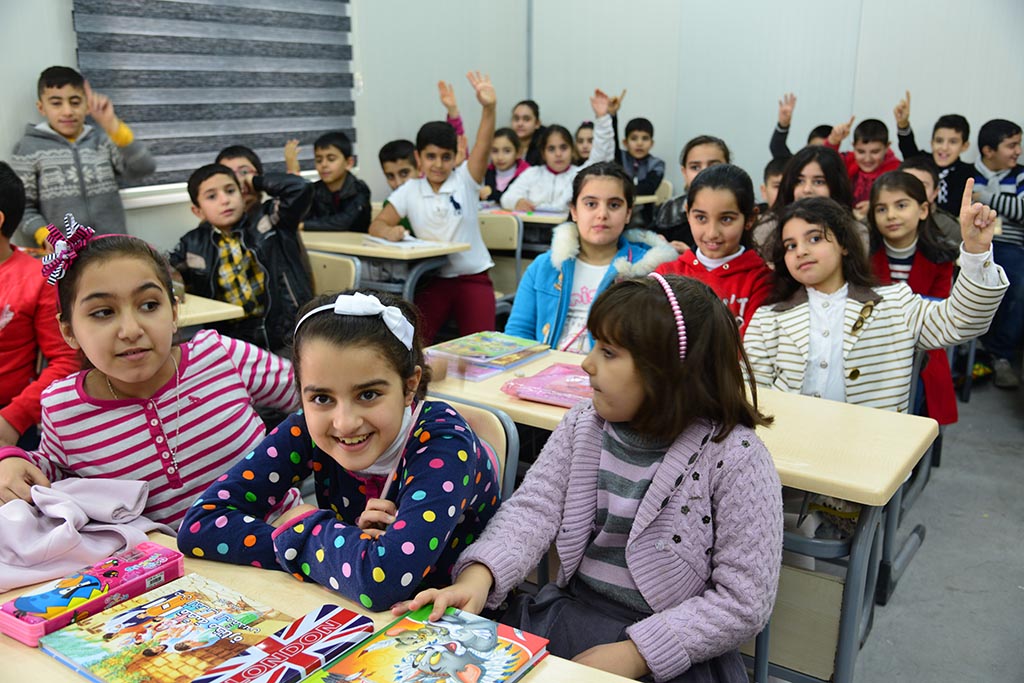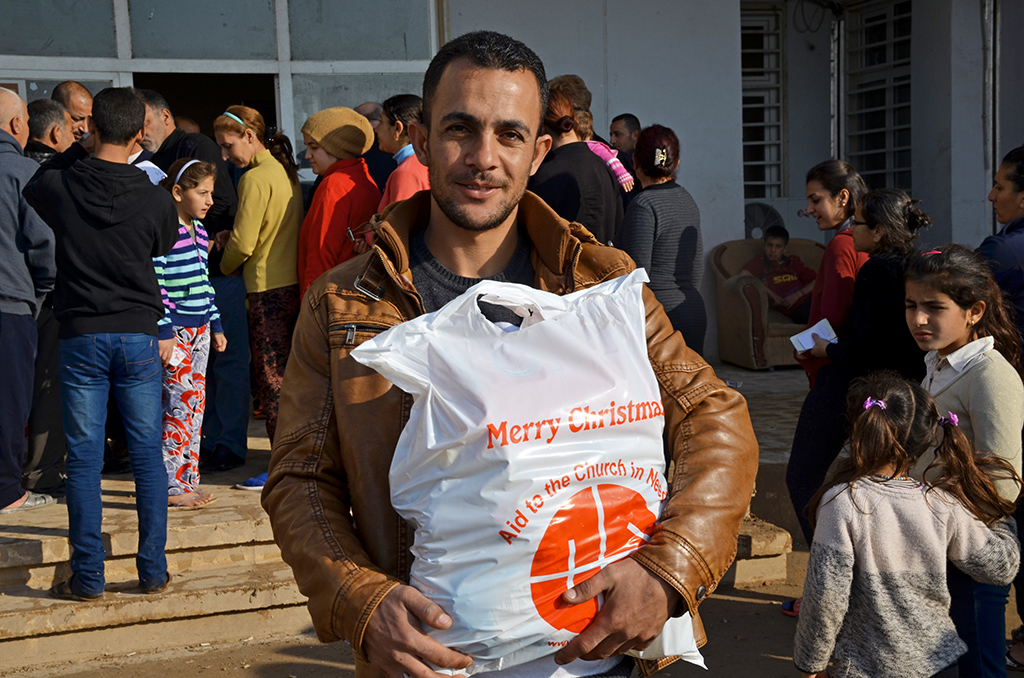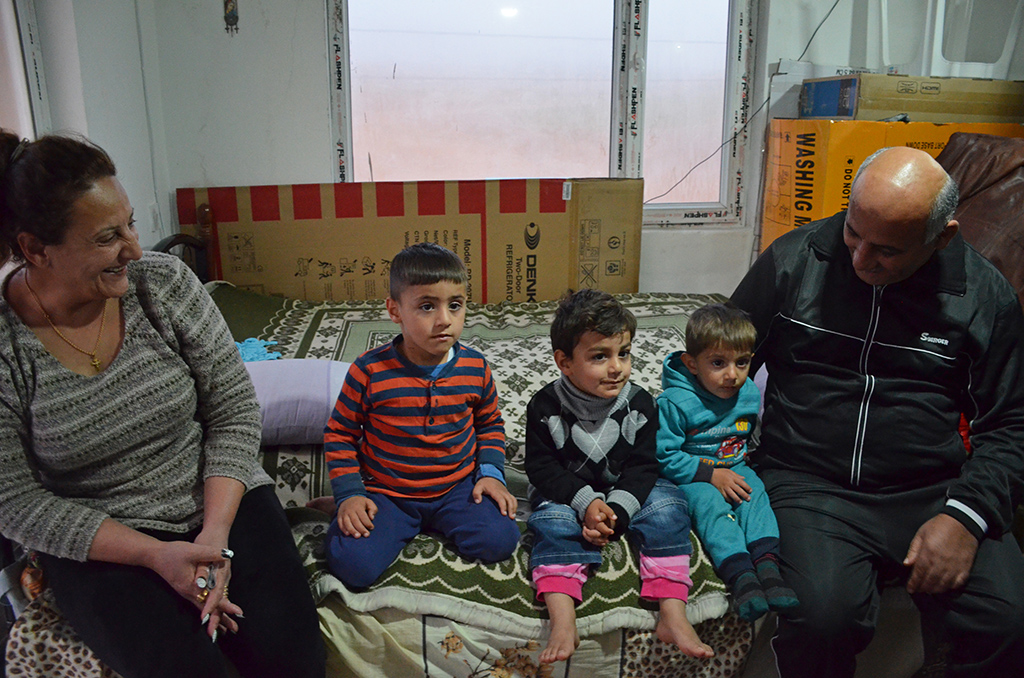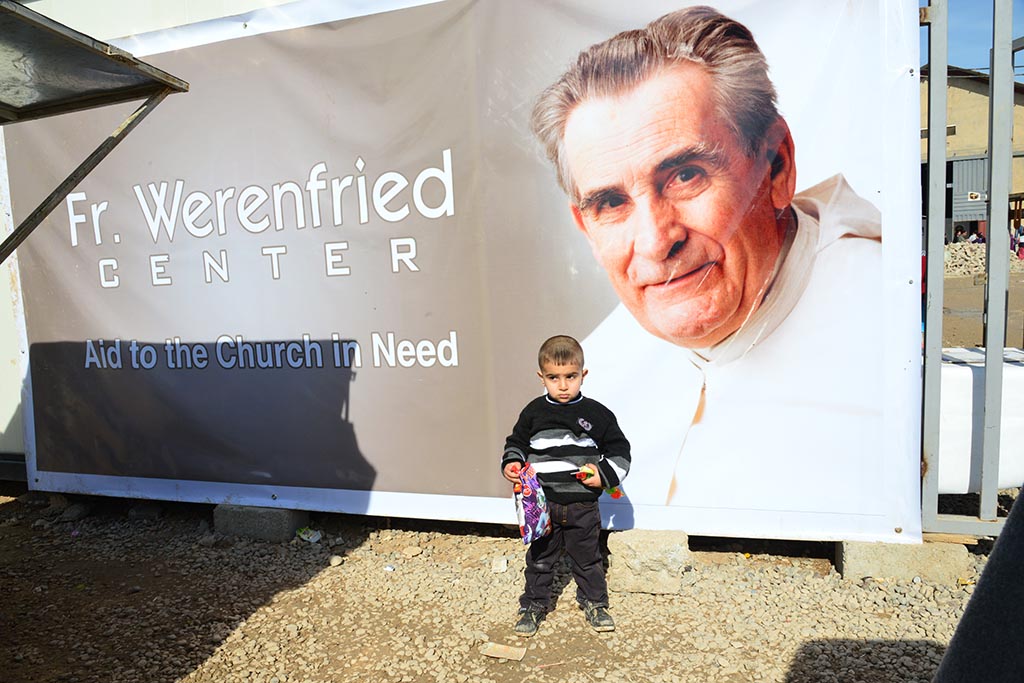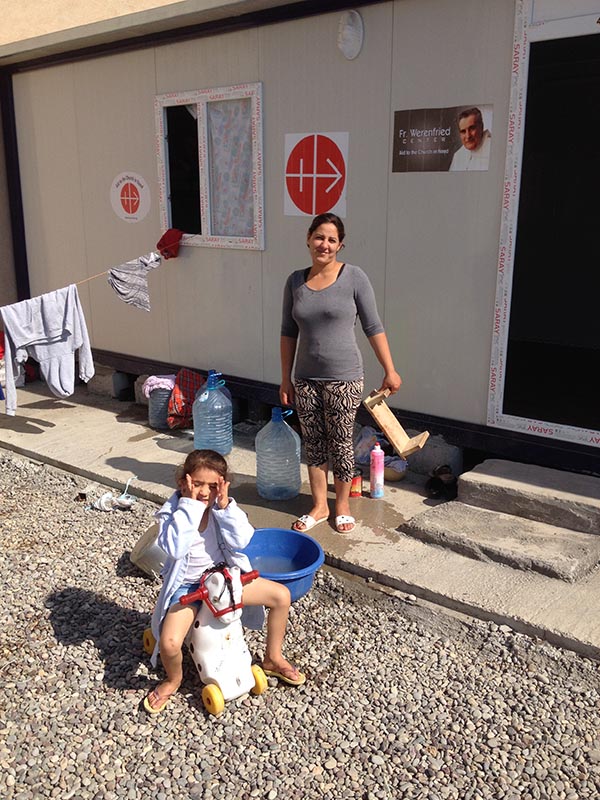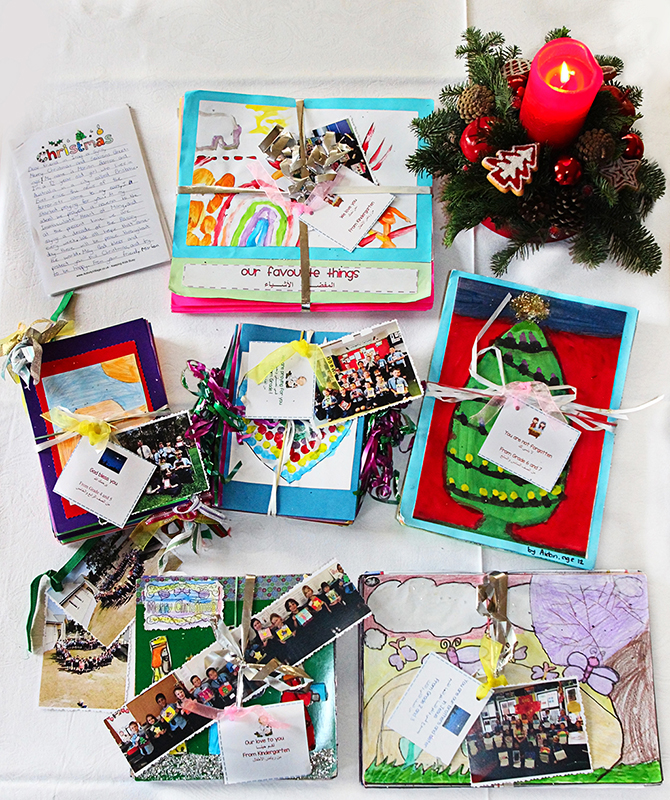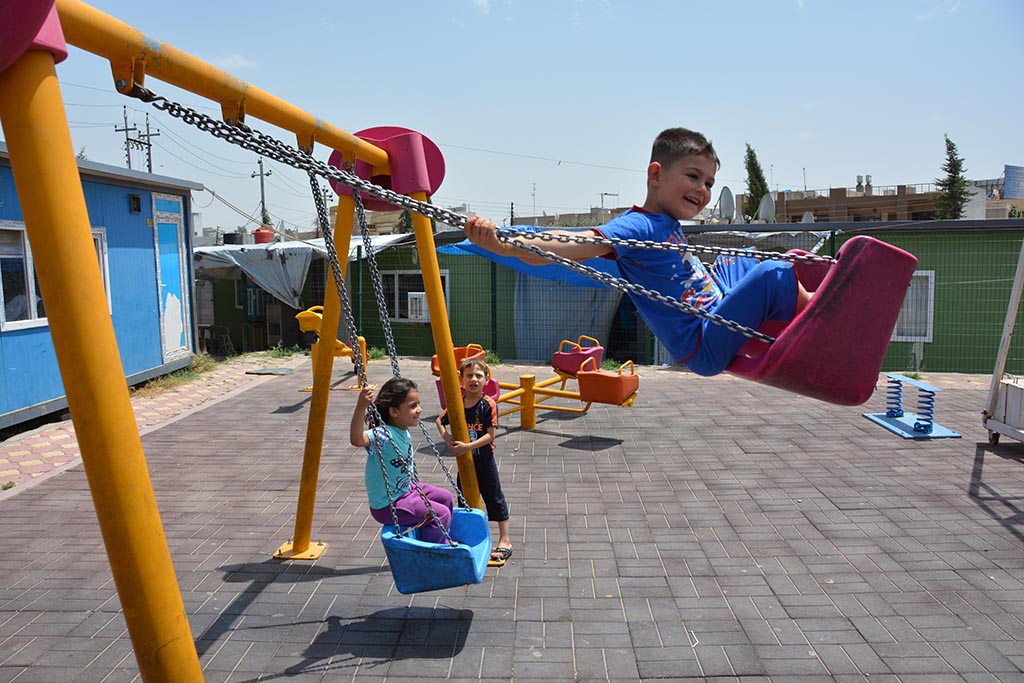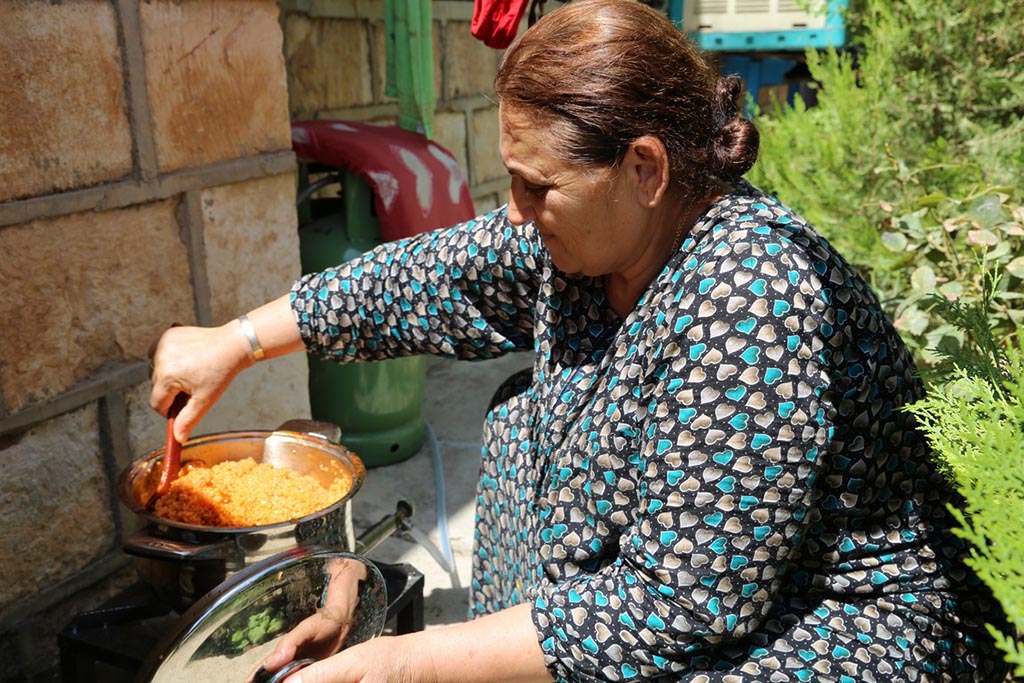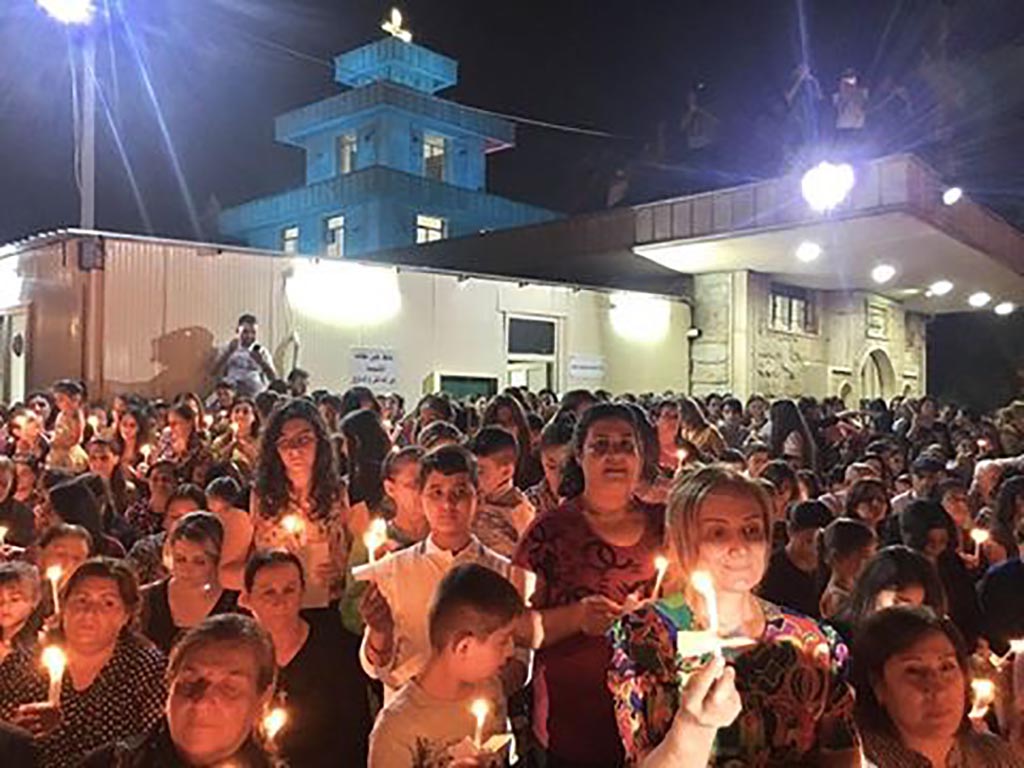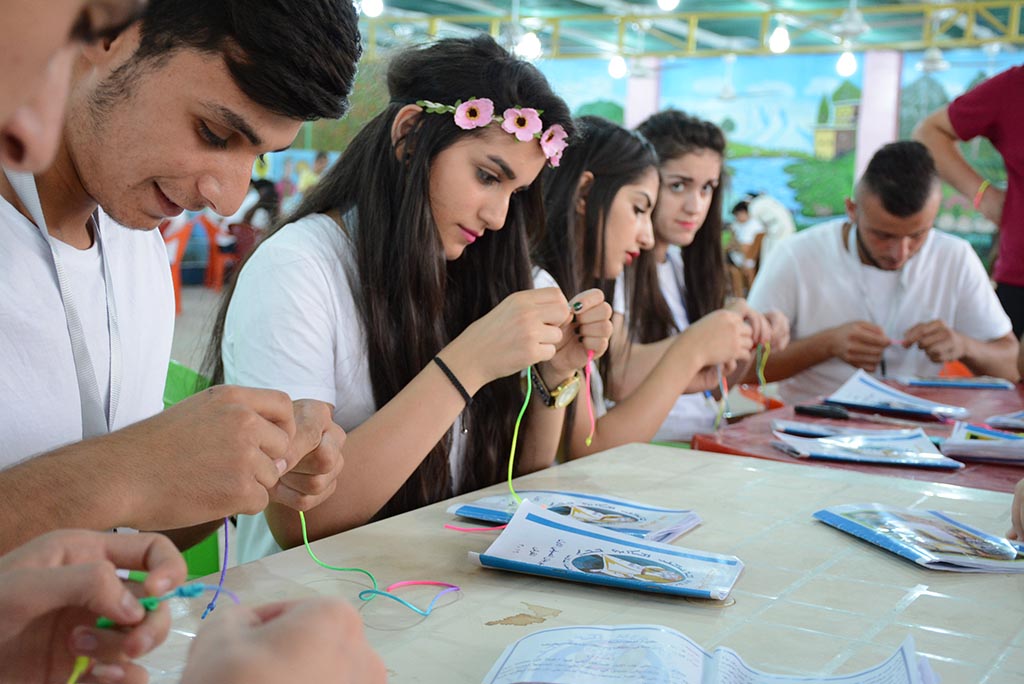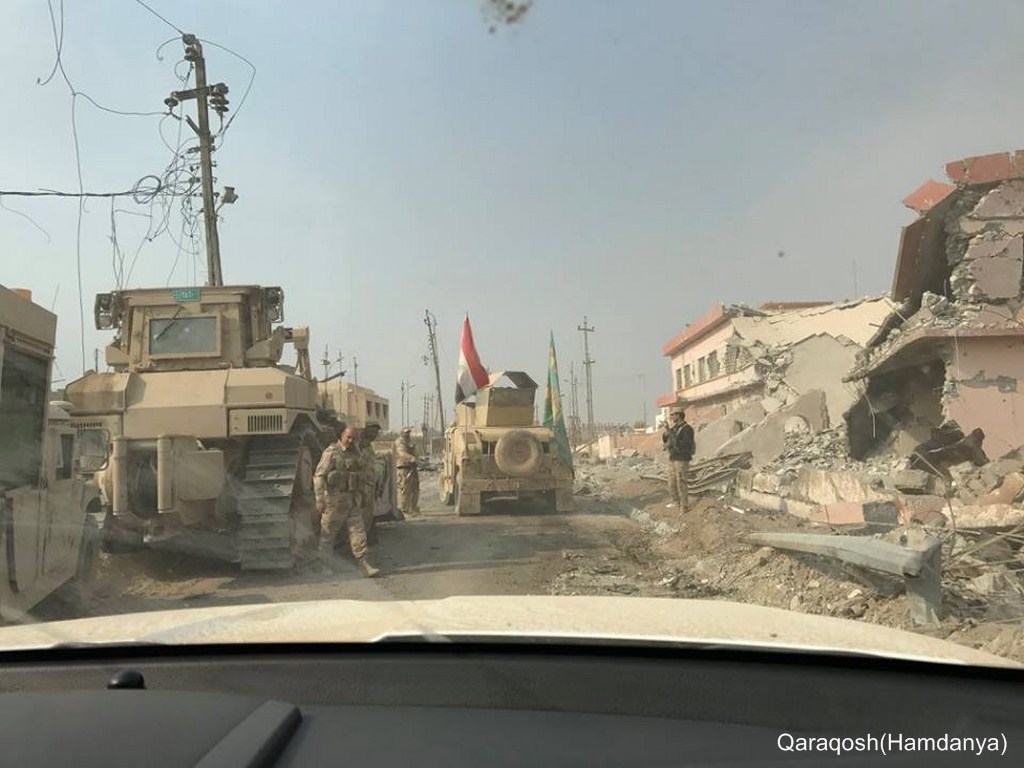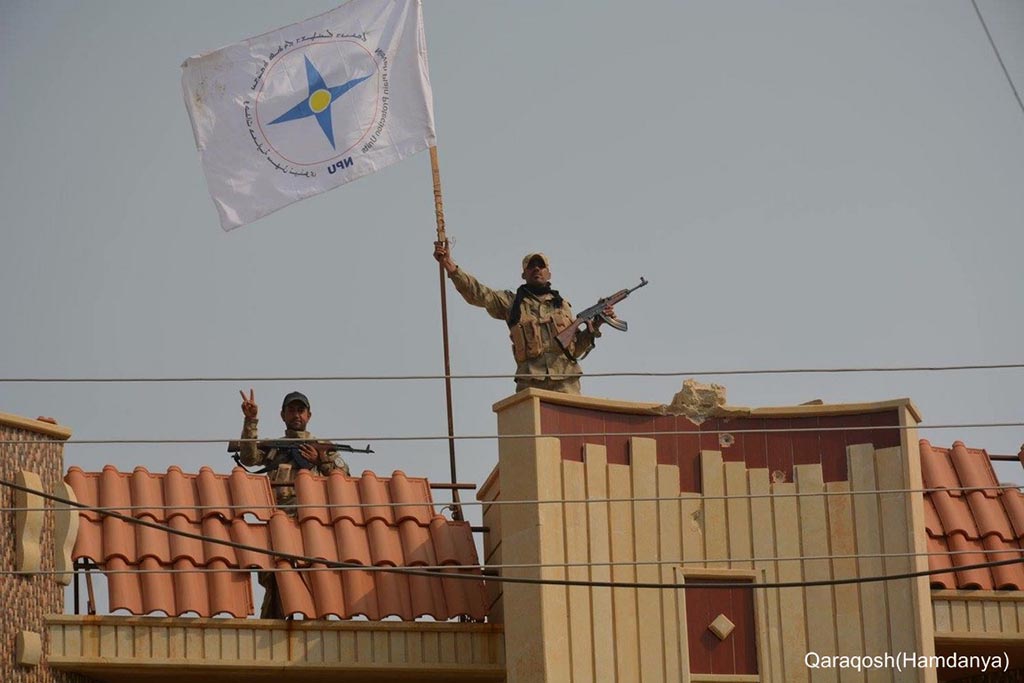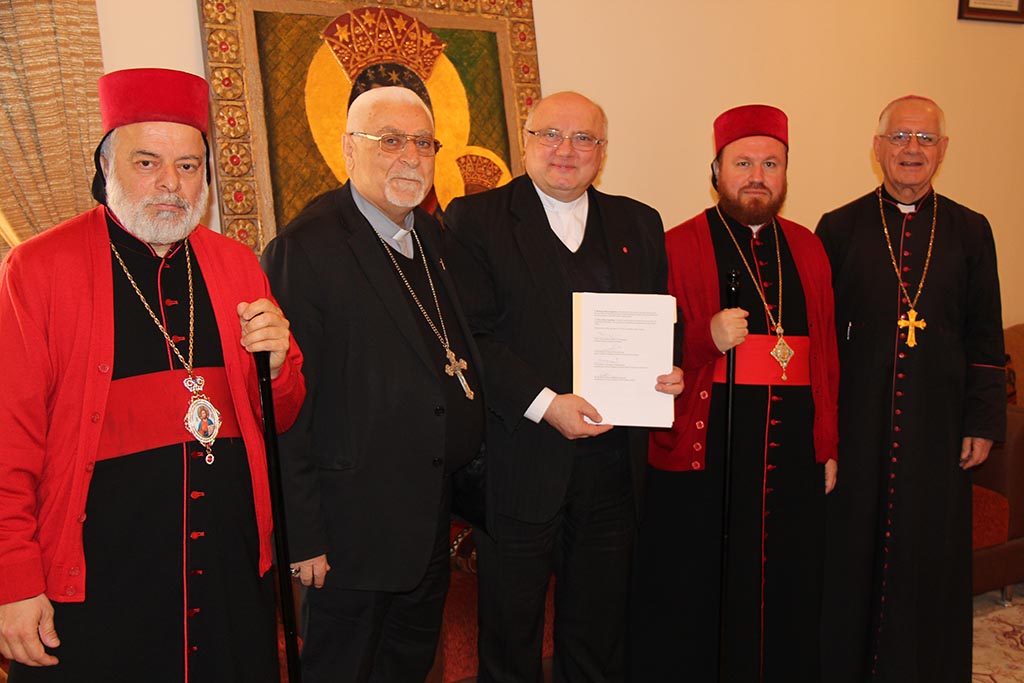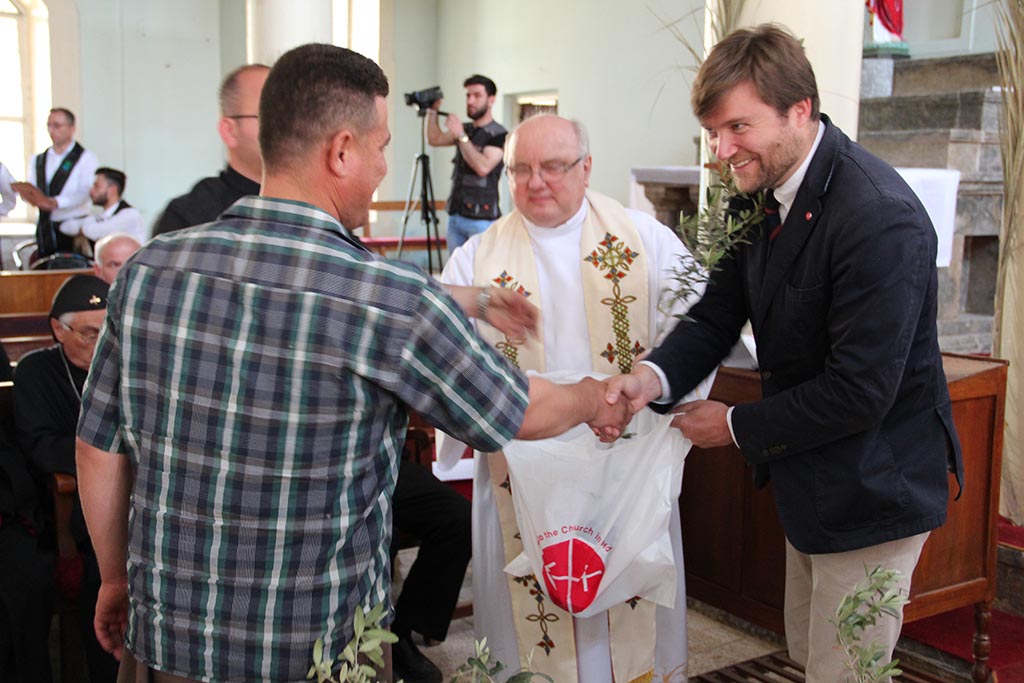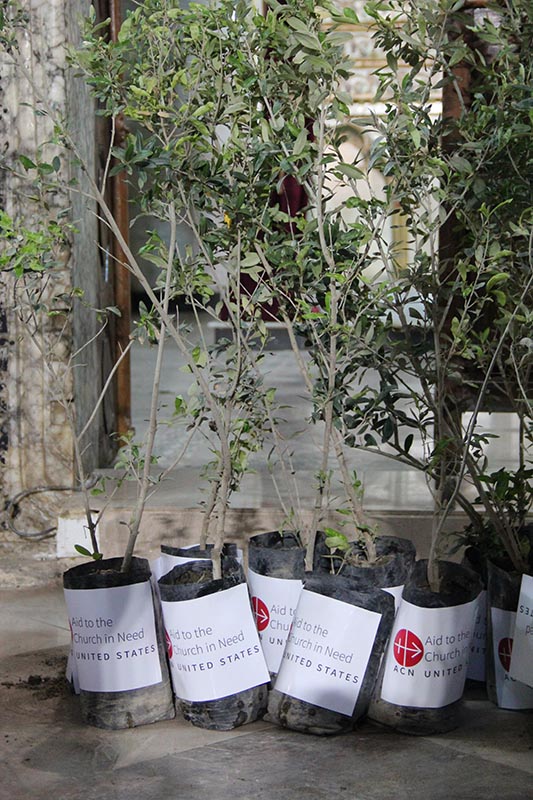An overview of events in Mosul and the Nineveh Plains and the situation of the Christian population forced out of the area (from 2014 to the Spring of 2017)
The so-called Islamic State (originally ISIL or ISIS, then IS, and also known as Daesh) has its roots in the terrorist organisation Al Qaeda from which a number of different splinter groups emerged following the US invasion of Iraq in 2003.
On 9 April 2013 the then leader of the group, Abu Bakr al-Baghdadi parted company with Al Qaeda. From 2013 onwards ISIS enjoyed a number of military successes, and in March 2013 Raqa fell as the first Syrian provincial capital into the hands of one of the rebel groups. In Iraq, in 2013 alone, this terrorist organisation carried out no fewer than 10,000 or so military operations.
In January 2014 ISIS captured the Iraqi towns of Falluja and Ramadi. On 10 June they also captured the million-plus city of Mosul, the second-largest city in Iraq. Half the population fled the city, most of them into the surrounding smaller towns and villages of the Niniveh plains. The Christian churches there opened their schools, kindergartens and community centres to house the refugees – offering refuge not only to Christians but also to Muslim families.
In Alqosh, for example, a Christian town some 30 miles (50 km) from Mosul, not only 500 Christian families but also 150 Muslim families were taken in. In Tilkef over 700 refugee families were given shelter, including many Muslims. The town was completely overfilled and refugees were accommodated in a printing house for liturgical books. The situation was similar in other towns and villages in the area.
On 29 June 2014 ISIS officially declared the establishment of an Islamic caliphate, after having conquered a series of adjoining territories in north-west Iraq and eastern Syria. In doing so they imagined themselves to be fulfilling the prophecies of the Prophet Muhammad. They changed their name from ISIS (Islamic State in Iraq and Syria) to Islamic State (IS), in order to show that their expansionist goals of military conquest were not limited to Iraq and Syria.
On 18 July 2014 the last Christians fled from Mosul, after IS had given them an ultimatum that they could not accept. Either they must convert to Islam or pay the jiziya, a form of head tax for unbelievers at a level to be arbitrarily decided by the conquerors. If they refused, they were to be put to the sword. The homes and properties of the Christians were marked with the Arabic letter ن , the first letter of the word „Nasrani“ (from „Nazarene“, meaning „ Christian“ in Arabic). Once the ultimatum had expired, these marked houses were confiscated.
At that time Christians in Mosul could look back on almost 2000 years of Christianity, since Christians had been living there since the first century A.D. The city of Niniveh of course appears even in the old Testament, being part of the story of the prophet Jonah; today it forms a part of the city of Mosul.
Prior to 2003 there had been some 60,000 Christians living in the city of Mosul. After 2003 there were just 35,000. However, after IS had overtaken the city in July 2014 there were no Christians left in the city at all. They left behind them 29 Christian churches, the fate of which, with one or two exceptions, is still unknown. But the total destruction of the 1400-year-old monastery of Mar-Elia, which stood on a hill, was fully documented through satellite imagery and announced by the American Associated Press Agency (AP) in January 2016. On 9 June 2015 IS commemorated the first anniversary of the capture of Mosul by converting the Syriac Catholic church of Saint Ephraim into a mosque.
The Christians who fled Mosul as a result of the ultimatum sought refuge in the majority Christian towns and villages of the Nineveh plains, above all in Karakosh, a town that was almost entirely Christian and which, with around 50,000 inhabitants and 10 Christian churches then constituted the largest single Christian town on the Niniveh plains. This town was later the scene of heavy fighting between IS militias and the Kurdish Peshmerga fighters and most of the Christians once again fled the city. Only around 100 Christians remained behind, among them the priests and also the Syriac Catholic Archbishop Yoanna Petros Mouché, who had previously fled here from Mosul. After three days there was a temporary lull in the fighting. However, on 6 August, the feast of the Transfiguration of the Lord, the Kurdish Peshmerga forces, who had been defending the Christian areas to the north of Mosul, withdrew. Now there was nobody to oppose the advancing forces of IS. The first bomb to fall killed two children playing in a garden and left a third child severely injured. The whole town was thrown into alarm, since the arrival of the IS forces was clearly imminent, following the withdrawal of the Peshmerga fighters. The last of the inhabitants to flee left with little more than the clothes on their backs, leaving behind only a few elderly and sick people who could not move.
Following the capture by IS of Karakosh, various smaller towns and villages in the area were also invaded, among them Bartella and Karemlesh. Similarly in Telskuf, 20 miles (32 km) to the north of Mosul, the inhabitants fled, among them 12,000 Christians. Altogether during this time around 100,000 Christians fled their homes in the Niniveh plains, most of them heading for Erbil, the capital of Iraqi Kurdistan (the autonomous Kurdish-controlled region of northern Iraq). Others led to Alqosh, the only Christian city of the Niniveh plains not to have been overrun by IS – although in August 24 the IS militias had already almost reached the town. Others sought refuge still further to the north in the region of Dohuk, close to the Turkish border, while others again fled as far as Baghdad.
In many respects the Christians felt they had been betrayed. The Kurdish fighters who were supposed to be defending the Christian towns and villages against IS had promised them that they would be safe. However, ISIS suddenly overran the Christian towns and villages of the region. Often they didn‘t even have time to grab a change of clothing. And at the same time many had to witness their own homes being looted by their former Muslim neighbours.
Moreover, the Christians were offered no help either by the Iraqi central government or by the regional Kurdish administration. Church representatives accused the central government in Baghdad of offering no help whatsoever to the exiled Christian refugees. By contrast the Kurdish administration did at least open its borders to the Christian refugees and also granted them permanent residence permits, whereas the Muslims from the IS-affected areas were only granted something like a temporary residence permit. This distinction between Muslims and Christians was made because it was apparent to the authorities that the Christians had no intention at that time of returning, whereas the Muslims were eager to return as soon as possible. It was on this basis that the Christians were offered permanent resident status.
Nevertheless, the Kurdish government also offered no material support to the refugees, although the provincial governor of Erbil did at least come to Ankawa to greet the refugees. And representatives of various government authorities visited Church representatives and advised them. But financial and material help was not forthcoming, and the Christian Churches were and still are therefore the first and most important port of call for the refugees and themselves organized the greatest part of the aid for these internally displaced families, as within a matter of hours the churches, Church schools, sports halls and secondary schools filled up with thousands of families in the towns and other centres where they had sought refuge. Despite this, many of the families initially had to camp out in the open.
The local Christian Churches devoted all their available resources to caring for the newly arrived refugees, but were inevitably ill-equipped to cope with such an influx of needy people. On 12 August 2014 Aid to the Church in Need (ACN) already offered initial emergency aid of 200,000 Euros to cover the most urgent needs of the refugees, providing food, blankets and other basic necessities.
Again on 17 October 2014 the international Catholic pastoral charity and pontifical foundation ACN provided a veritable “package” of aid projects for the refugees, involving a total of almost 4 million Euros. This was in fact one of the largest single financial aid packages provided at any one time in the 67-year history of the charity. Time was of the essence at this point, since Winter was imminent, bringing with it heavy rainfall and sharply falling temperatures that threatened to transform the tented refugee city into a cold and muddy swamp.
Feverish efforts were therefore made to rehouse thousands of families from their tented quarters. On top of this, many of the families, who until then were housed in public buildings and above all schools, were forced to vacate these at the beginning of the new school year in the middle of October. In many cases there were as many as 20 people housed in a single room. And so, in October 2014 the following projects were supported:
- Eight new schools were created out of prefabricated PVC sections and set up in Erbil, Ankawa und Dohuk. They were able to provide teaching for 7500 schoolchildren, being taught in shifts. Total costs: 2 million Euros
The first of these eight „container schools“ was opened on 11 December 2014 in Ankawa. Present at the dedication ceremony was the executive president of ACN, Johannes Freiherr Heereman, who emphasised: „For our charity the education of children is one of the first priorities. We must not allow a situation to develop in Iraq like that in Syria, where some children have been unable to attend school for years. They represent a lost generation, with unforeseeable long-term consequences.“ The remainder of the container schools were opened in the Spring of 2015, and the teachers were for the most part teachers who themselves had come from the Christian towns and villages now occupied by ISIS. The central government in Baghdad now provides for the salaries of the teaching staff. In addition to being used for teaching, the classrooms are also used for catechetical instruction and other Church-based activities.
- 150 PVC container homes: 470,000 Euros
In the Werenfried Village, named after the founder of ACN, Father Werenfried van Straaten, who died in 2003, this village provides accommodation for around 2,000 people in prefabricated „container homes“. These container homes, which vary in size according to the number of people in the family concerned, provide electricity and running water and have proper toilet facilities. The container village is also arranged in such a way that the families can cook outside on gas stoves.
- Christmas packages for 15,000 children: 295,000 Euros
ACN provided 295,000 Euros so that Christmas parcels could be made up for 15,000 refugee children.
The parcels contained warm clothing, sweets, colouring crayons, colouring books, a Child‘s Bible each and a little miniature Christmas crib, together with a greeting card in English and Arabic. They were packed and put together by the religious sisters of the Chaldean order of the Daughters of Mary, and distributed to all the refugee children.
- Mass stipends for more than 100 Iraqi refugee priests of the Chaldean and Syriac Catholic Churches (88,200 Euros)
- Help for 28 seminarians in the seminary of Saint Peter in Ankawa (39,000 Euros)
Emergency aid of 19,000 Euros was also provided for the Sisters of the Holy Cross, who were likewise expelled from Mosul, plus support of 78,000 Euros for the Babel College of Philosophy and Theology in Ankawa, and aid of 38,000 Euros for providing catechetical instruction in 20 parishes in the Iraqi capital Baghdad.
In 2015 ACN also provided support for a refugee camp in Baghdad to which Christian families had moved, since there was no more room for them in Kurdistan. There were around 135 families (about 520 individuals) living in this camp. ACN has helped with the running costs of the camp and also for the establishment of the kindergarten and a multipurpose hall that is also used as a chapel.
Since 2014 and up till March 2017 ACN has provided help of over 29.26 million Euros for projects in Iraq, of which 7 million Euros was help with housing costs and 11 million Euros aid for food and basic necessities.
All this aid is not merely a response to the critical humanitarian situation caused by the invasion of IS, but also a means of stemming as far as possible the massive exodus of Christians from this region, which is rightly called a cradle of Christianity, and the consequent bleeding dry of the Christian communities which could ultimately mean the end of the Christian presence here. In fact the Christians themselves strongly desire to stay on in their homeland, and so the material aid we give to help these families survive is an encouragement for these Christians to remain in Iraq.
The Christian presence in this region is also important for a lasting future peace, since the Christians form something of a bridge between the various and mutually hostile Muslim groups. They also make a vital contribution in the field of education and are widely respected by moderate Muslims.
In March 2016 the Iraqi army began to advance towards Mosul, with the support of Kurdish Peshmerga units and the backing of the international alliance against IS, under US command. This international alliance against Islamic State was established on 5 September 2014 at the NATO summit in Newport, UK and began its activities with air attacks in the Syrian province of Raqa, destroying the headquarters of IS in the town of Raqa.
On 27 August 2016, during the advance on Mosul, the small town of Al-Quayyara was reconquered, and by 18 October 20 villages had already been liberated. On 19 October the Christian town of Karakosh was retaken, followed on 21 October by Bartella and on 23 October by Bashiqua.
In January 2017 the eastern part of the city of Mosul was retaken. As of this writing (end of May 2017) the western part of the city is still being fought over.
27 March 2017 saw the official founding of the Niniveh Reconstruction Committee under an agreement between Syriac Orthodox Metropolitan Nicodemus Daoud Matti Sharaf of Mosul, Kirkuk and Kurdistan, Syriac Catholic Archbishop Yohanna Petros Mouché of Mosul and Chaldean Bishop Mikha Pola Maqdassi of Alqosh. The document was signed at the see of the Chaldean archdiocese of Erbil.
The 8th of May 2017 saw the start of the official rebuilding programme, with the formal opening of three rebuilding projects in the villages of Bartella, Karamless and Karakosch.
Even before the beginning of the official rebuilding programme, many Christian families had taken advantage of credit facilities offered by the Church and begun work on rebuilding their own homes. In this way, in the town of Teleskuf, 300 homes had already been made habitable again by the start of the official rebuilding programme. Around 450 Christian families have now returned to their homes.

